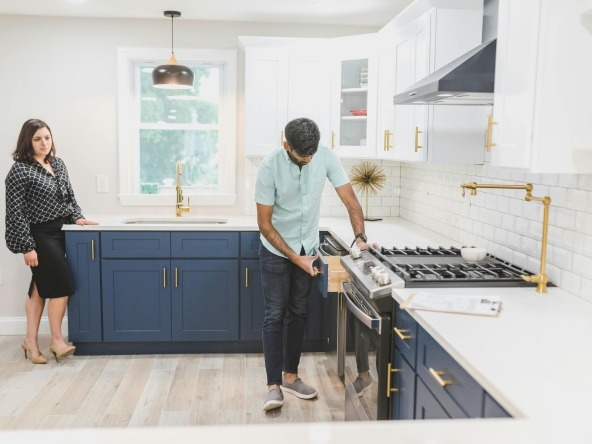The average home in the Australia continues to rise. This is very evident in the highly demanded cities such as Melbourne and Sydney. Unfortunately, the capital growth in real estate has often exceeded the increased rate of Australia’s annual employment income. Therefore making affordability harder than it has ever been before.
Resulting in many Australians considering other alternatives to buying a property. There are many strategies that are proven useful to advance a person’s wealth and preparing them to buy a property. Often the main restriction for buying a property is saving up for the deposit. We like to think buying off-the-plan a great way to introduce yourself into property. While it’s under construction you are also buying time to continue saving. Let’s leave this for another time…
One common idea we receive is buying with a friend or sibling. This can be a smart way to collecting a property deposit and fast tracking you into buying a property. There are some interesting benefits in doing this, but not with out risk.
What are the advantages of buying with a friend or family:-
- Sharing the costs – this is the most obvious opportunity. You have the chance of sharing the cost of collecting a deposit, paying the loan repayments and covering the property expenses. These shared costs will minimise impact on your personal cash flow and of course… social life.
- Having more money working for you – More money provides better purchasing power. A large budget will provide the opportunity to purchase a better property or a better location. It may allow you to buy a larger property or one closer to amenities or public transport.
- Decision Sharing – Having two heads is better than one. Many people get very nervous when buying property. Given the commitment of buying, it’s with good reason. Having two people review the property makes the decision making easier. Sharing that responsibility helps provide better peace of mind and manages your emotional attachment with a realistic perspective.
What are the disadvantages of buying a with a friend or family:-
- Decision Sharing – This is an interesting point. Sharing responsibility can help make better decisions (as outlined above), but it can also have a complete opposite effect. Sharing the decision can become time consuming and create more problems.
- Change of Lifestyle – At the point of buying a property, you may be in a similar life stage. You may be with little commitment and no responsibility. Overtime, owning a property with a friend or sibling may become a problem if they phase into different life stages. What if one has a family and needs the excess cash from the gained equity to find their children’s education. What if they need to sell it to improve their borrowing capacity to buy a home with their partner/spouse? Short term this may not be an issue, but can it become an overwhelming problem in the long term?
- Age difference – Life stages can change at any stage, however if you plan to buy a property jointly with someone 15 years old, what if the older person enters retirement and wants to sell out and take their profit? This potential issue can cause a premature sale for the young owner.
Ownership types:-
There are various ways to own property and different lending strategies to cater your purchase. There are many factors to consider before buying with a friend or family member. We strongly recommend seeking advice off a mortgage broker and/or an accountant. The ownership of the property and the mortgage type can play an important factor long term.
Joint tenancy and tenancy in common are the two most common classifications of ownership of a property.
Both arrangements give each party ownership rights and a share of the property, however the estate planning implications are quite different.
- Joint tenancy ownership is where the title to the property holds an individual interest. An example of a joint tenancy is the ownership over a house by a married couple. In this situation, joint tenancy comes with the ”right of survivorship”. In the event one of the joint tenants dies, the interest of the deceased joint tenant automatically passes to the surviving joint tenant or tenant(s) if more than one party.
- Tenancy in common ownership does not give automatic “right of ownership” as a joint tenancy. They are co-owners of the property. The individual ownership can be directed to their nominated party and/or estate.
There are a few ownership types to cater buying with a friend or family. Each form of ownership has their own advantages and disadvantages. We strongly encourage you to discuss this with you lawyer before purchasing a property. Please ensure you ascertain what is most appropriate for your own individual circumstances.
Establish a written agreement
Another helpful tip when buying with a friend or family member is to put your agreement in writing. This might seem a little to conservative, but this will ensure transparency in the future. It’s quite common to forget your agreement over time. Buying it with a simple structure may present an easier exit strategy in the future, but putting it in writing will provide peace of mind for you and your surrounding loved ones,.
It would be wise to have an independent professional assist in documenting this. Some of the questions that are important to potential include are:-
- What percentage of the property do each owner hold?
- How will the ownership be structured? (joint tenants, or tenants in common)
- How much are you going to borrow?
- How will the property deposit be paid? Is it paid with cash? Is it secured again an owners property?
- How are the property expenses split? Where are they paid from?
- Who will live in the property? Is it to occupy or to lease?
- What is the contingency plan if one owner is unable to cover the costs?
- Owning property comes with responsibilities. How are these shared? How pays the bills? Who organises the tax returns?
- What is the exit strategy? Is there a specific date to sell? Do the existing owners have first right to buy of an owner wanting to exit?
In summary
Signing and witnessing a legal agreement may feel ‘over the top’. However, it will protect all parties concerned if something goes wrong. There are many benefits and risks associated with this strategy. Many of the risks can be reduced with careful management. When buying with a friend or sibling set up a plan in advance and enjoy the benefits of owning property.
Contact us now for a free consultation. We welcome the opportunity to help.
While we have taken care to ensure the information above is true and correct at the time of publication, changes in circumstances and legislation after the displayed date may impact the accuracy of this article. If you want to learn more, please contact us. We welcome the opportunity to assist you.
Mar 2018













